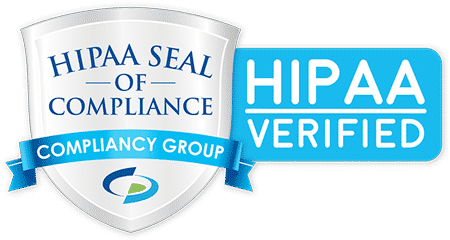
Understanding the Impact of Technology on Healthcare
In recent years, technology has revolutionized the healthcare industry. From improving patient care and efficiency to advancements in medical research, technology has had a significant impact on the industry. This article will explore the ways in which healthcare IT support has benefitted the industry, the ethical and privacy issues surrounding technology in healthcare, and the need for managed IT services in healthcare facilities.
Ways Healthcare IT Support Has Benefitted the Industry
More people are recognizing the importance of health information technology (health IT) in transforming and improving the healthcare system. It’s:
1. Improved Patient Care and Efficiency
Incorporating health information technologies has revolutionized the patient care industry, resulting in numerous benefits such as enhanced patient safety outcomes, increased efficiency in processes, and improved experience for both patients and providers. Some of the most prominent technology includes:
- Electronic Health Records (EHRs) – Electronic health records have streamlined patient data management system processes, enabling healthcare providers to access and update patient information more effectively. As a result, patients receive better-coordinated care, reduced chances of medical errors, and a more personalized experience.
- Telemedicine – Telemedicine has emerged as a convenient way for patients to receive health care, especially during the COVID-19 pandemic. The use of telemedicine has demonstrated an improvement in healthcare access and efficiency by allowing patients to consult with providers remotely without having to visit a clinic or hospital.
- Wearable Medical Devices – These devices have gained popularity in recent years as they provide essential healthcare insights and facilitate improved self-care. Devices such as fitness trackers, smartwatches, and glucose monitors can collect valuable data about a patient’s health and share it with providers to help them monitor and manage the patient’s health effectively.
2. Advancements in Medical Research
- Artificial Intelligence and Machine Learning – These innovations have shown promising potential in the field of healthcare improvement. By optimizing patient data management systems and EHRs, AI and machine learning have the potential to analyze vast amounts of patient data in real time and make predictions about adverse drug reactions, improve diagnostic accuracy and minimize errors in treatment processes.
- Genomic Analysis – Genomic Analysis helps in identifying potential health risks, improving preventive care, and personalizing treatment plans for individuals based on their genetic makeup, which has led to a revolution in the way diseases are diagnosed, treated, and prevented.
- Robotics and Automation – These technologies are instrumental in achieving higher accuracy and precision in various medical procedures, from minimally invasive surgeries to medication administration. By minimizing human error and increasing efficiency, robotics and automation have led to significant improvements in patient safety and satisfaction.
3. Enhanced Accessibility and Affordability
- Mobile Health Applications –Mobile apps are a major breakthrough in providing accessible and affordable healthcare services. They allow users to monitor their health, access electronic health records, manage appointments, and consult with medical professionals all from the convenience of their smartphones.
- Virtual Reality in Training and Therapy – Virtual Reality (VR) has opened new possibilities in the fields of medical training and therapy. By using VR technology, medical professionals can simulate complex surgical procedures, allowing for hands-on practice and enhanced skill development. Additionally, VR has found applications in various therapeutic interventions, such as pain management, physical therapy, and psychotherapy.
- Online Patient Portals – These portals allow patients to access their health information, lab results, prescriptions, and medical history, enabling them to make informed decisions about their healthcare needs. Additionally, online patient portals facilitate communication between patients and their healthcare providers, leading to better patient engagement and satisfaction.
Your infrastructure should always support your business goals. When it doesn’t, it’s time to create a strategic IT plan so you can adjust to changing conditions.
Ethical and Privacy Issues
While there have been many benefits to IT in healthcare facilities, patient data management systems have increasingly been integrated into health information technologies, provoking the emergence of ethical and privacy concerns. Many have raised relevant questions about issues such as the following:
- Data Security Challenges – As health information technology advances, so do data security challenges. The implementation of solutions like electronic medication administration records and other healthcare improvement technologies compel organizations to confront possible vulnerabilities that could result in security breaches.
- Health Disparities in Access to Technology – As health information technology becomes increasingly prominent in the healthcare industry, it is crucial to address the disparities in access to these resources. This disparity may leave certain patients at a disadvantage—for example, lack of access to the Internet—exacerbating existing inequities in patient care.
Balancing Benefits and Risks
While health information technologies can offer numerous advantages in improving patient safety outcomes, it is also important to weigh these benefits against potential risks. These risks must be thoroughly assessed, monitored, and mitigated to maintain a balanced approach to implementing new technologies in healthcare settings. Thankfully, a managed service provider can help address these issues.
The Need for Managed IT Services for Healthcare Facilities
Considering the complex landscape of health information technology advancements, healthcare facilities must recognize the importance of managed IT services in patient data management systems. Managed IT services provide essential support in maintaining electronic health records, bar code medication administration, and other crucial health care improvement technologies.
For instance, managed IT services can help healthcare organizations remain compliant with industry regulations. Furthermore, these services ensure that healthcare providers are up-to-date with the latest technology trends and software updates and have the necessary resources for implementing new solutions when required.
Overall, investing in managed IT services is critical for healthcare facilities to navigate the evolving world of health information technology, protect patient privacy, optimize data security, and ultimately contribute to improved patient safety outcomes for both patients and healthcare providers.
Choose Net3 IT for Your Managed IT Services in Knoxville
Net3 IT offers top-of-the-line managed IT services in Knoxville, aimed at helping businesses like yours navigate the complex world of technology, boost efficiency, and enhance patient safety.
Whether you’re setting up a patient safety department or need to upgrade your existing healthcare facility with a patient data management system, our managed IT services have you covered. By partnering with us, you can focus entirely on your healthcare services and, most importantly, your patients.
Let our team of IT experts manage your environment. Our managed IT services unburden you while ensuring your systems are running optimally. Contact us today.

About Us
Since 2012, Net3 IT has offered enterprise-level IT experience and industry knowledge to help Knoxville businesses make the right decisions. We are committed to our customers’ success by providing cost-effective, high-value IT services, VOIP phone services, and strategic consulting.



